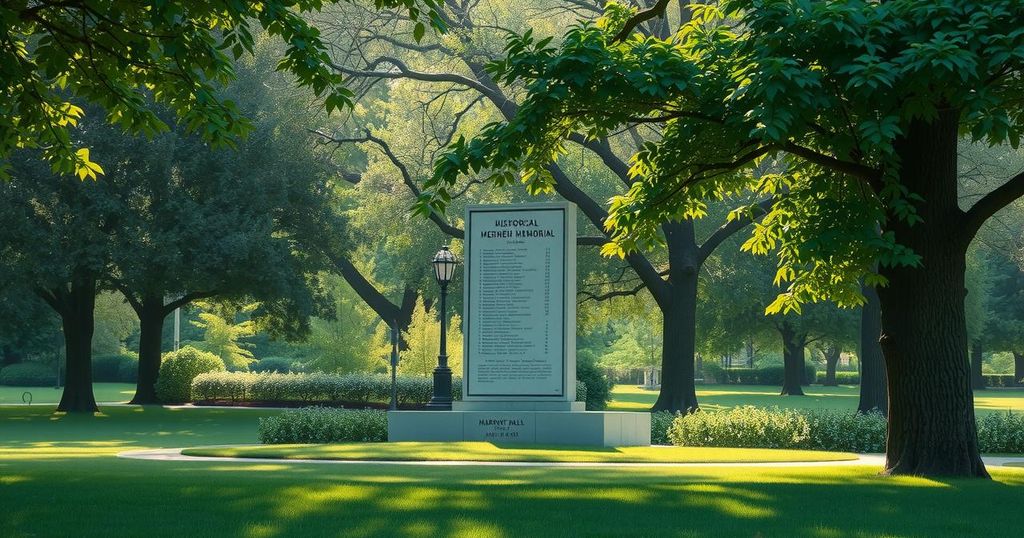Carencro Commemorates Lynching Victims with Unveiling of Memorial
Carencro has unveiled a historical marker honoring lynching victims Louis Senegal and Antoine Domingue, aimed at raising awareness about racial terror and promoting reconciliation. The marker is significant as the first in Lafayette Parish to recognize such victims, shedding light on a dark chapter in American history. Community members, including descendants of the victims, participated in this emotionally charged event focused on remembrance and education.
The Carencro community has unveiled a historical marker dedicated to honoring the lives of Louis Senegal and Antoine Domingue, two Black men lynched in the late 19th and early 20th centuries. Situated at 409 Veterans Dr., this memorial is notably the first in Lafayette Parish to acknowledge victims of lynching. Organizers express hopes that the marker will elevate awareness of the historical context of racial terror lynchings and facilitate reconciliation within the community.
During a poignant ceremony on March 29, community members commemorated the lives of Senegal and Domingue, victims of racial violence in Louisiana. The marker was brought to fruition by Move the Mindset and the Lafayette Parish Community Remembrance Project. Designed as a lasting tribute, this historical marker highlights the tragic deaths of both men, who succumbed to the rampant racial violence that afflicted the South during that era.
Ola Prejean, president of Move the Mindset, reflected on the somber significance of the event. Prejean noted, “It was, of course, during a time when white campers and white supremacy took over the legal system. They took the law into their own hands whenever they felt the need to.” According to Prejean, the marker serves as an educational tool, shedding light on both Senegal and Domingue’s stories and the broader narrative surrounding lynching in America.
The period from 1865 to 1950 saw over 6,500 Black individuals lynched across the United States, with Louisiana being home to at least 615 victims, including six from Lafayette Parish. This marker represents the inaugural effort to officially commemorate victims of lynching in Lafayette Parish. Prejean emphasized, “There is a chance for truth-telling, acknowledgment, and reconciliation around these tales.” He lamented that the stories of Senegal and Domingue remain largely unknown and undescribed in history texts.
Prejean advocated for the necessity of confronting this dark chapter in American history, stating, “If society keeps things in the dark, we don’t have a chance to learn from our history.” He poignantly remarked on the families affected by these tragedies, noting, “These are men who had families that were taken away from… part of the fabric of the community.”
Maya Senegal, a descendant of Louis Senegal, expressed profound emotional resonance with the day’s events. She conveyed her long-standing efforts to trace her lineage and expressed gratitude for the opportunity to commemorate her great-great-grandfather. “This is a blessing,” Maya conveyed. “To come here and be a part of history, I can cry.”
As a native of Carencro, Maya articulated her intentions to pass down the legacy of Senegal to her children, expressing hope that they would embrace the same familial interest. “For me, I want to pass along to my children,” she stated. “Hopefully, they will have the interest that I had to keep the family history going.”
The unveiling of the historical marker for Louis Senegal and Antoine Domingue in Carencro marks a significant step towards acknowledging the painful histories associated with racial violence in the United States. This act of remembrance not only honors the victims but also encourages communal dialogue about past injustices, fostering a path towards reconciliation. It serves as an imperative reminder of the need to educate future generations about these historical narratives to ensure they are not forgotten.
Original Source: www.theadvertiser.com




Post Comment